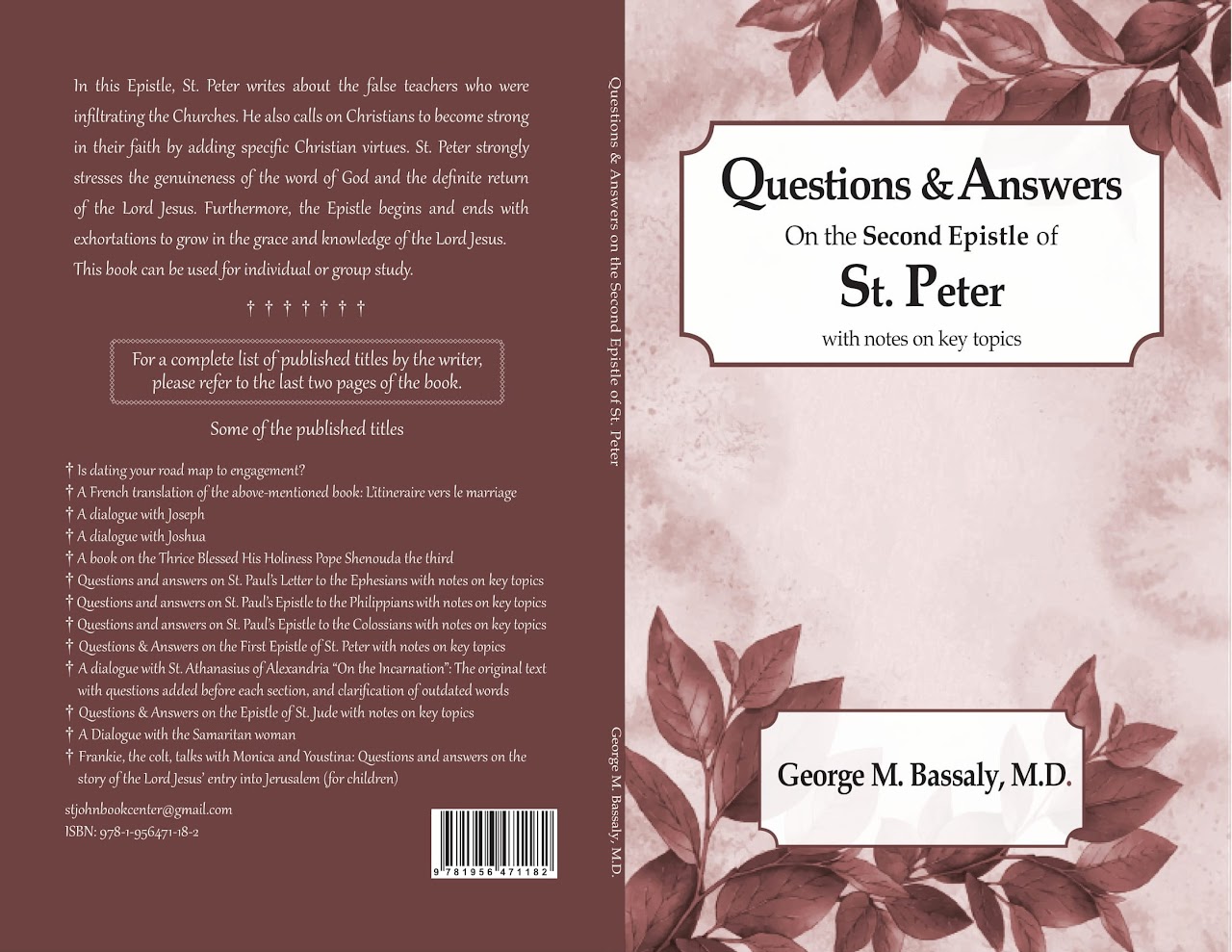
Author: Dr. George M. Bassaly, M.D.
Language: English
Price: $7.50
To inquire about purchase, please contact us.
Please enjoy an excerpt from the book:
Questions and Answers – Second Peter
Answer Q6: (2 Peter 1:13–15) “Moreover I will be careful to ensure that you always have a reminder of these things after my decease.”
“Stir up” (Greek: διεγείρω – *diegeiró*) means to arouse completely. Usage: to wake from sleep, to stir up, or to render active.
The comparison of the human body to a dwelling or a tent was used by St. Paul (2 Corinthians 5:1) and is repeated in 2 Peter 3:1. This imagery was also common in various literary traditions.
Nothing can bring serenity and peace in the hour of death like knowing we have faithfully and humbly followed the Lord Jesus and sought His glory.
St. Peter wanted to stir up the believers to diligent performance of their duties, keeping their minds alive with a sense of Divine truths for the benefit and edification of the Church. He wanted them to continue in their responsibilities and remember what had been preached to them. People easily forget or grow careless over time.
Answer Q7: (2 Peter 1:20–21) “No prophecy of Scripture is of any private interpretation, for prophecy never came by the will of man, but holy men of God spoke as they were moved by the Holy Spirit.”
If prophecy had come by the will of man, then it might be explained through man’s interpretation. But since it did not originate from man, the explanation must be sought from the same source from which the prophecy itself came — from God.
Another point: If the prophets had spoken merely as they pleased, they would be the best interpreters of their own words. But they spoke under divine inspiration, and therefore may not have fully understood the significance of their own prophecies.
Prophecy must be interpreted by other prophecy and by history — not solely by the prophet’s personal understanding. No doctrine, precept, or promise within it can be properly or fully understood by man through natural means alone.
— Page 22